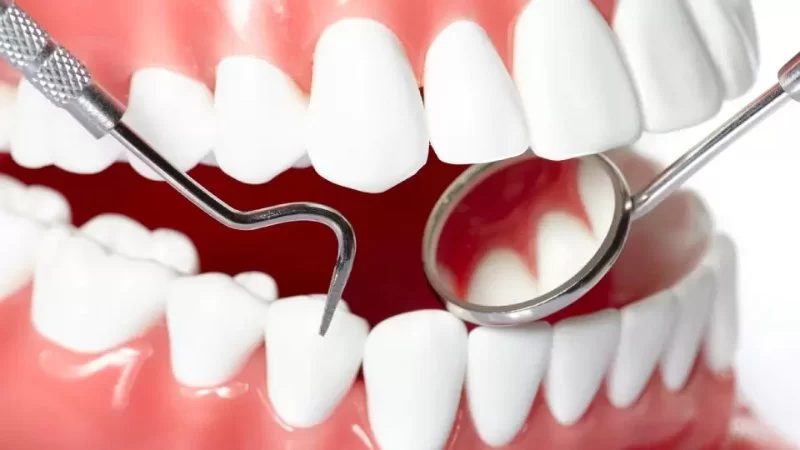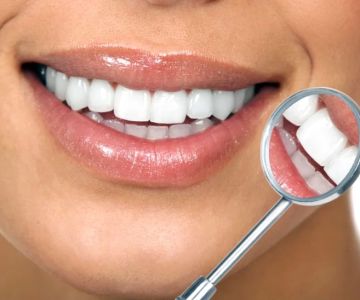
Understanding What Is Considered Good Oral Hygiene
When people think about a bright smile, they often picture white teeth, but good oral hygiene goes far beyond aesthetics. It involves the consistent care of your teeth, gums, and mouth to prevent dental issues such as cavities, gum disease, and bad breath. In the U.S., maintaining good oral hygiene is not only a matter of appearance but also of overall health — as research continues to link oral conditions to heart disease, diabetes, and other systemic illnesses.
So, what exactly is considered good oral hygiene? It’s a combination of daily practices, professional dental visits, and lifestyle habits that work together to protect your mouth. Let’s explore how you can build a truly effective oral hygiene routine and why it matters more than you think.
The Core Principles of Good Oral Hygiene
1. Brushing the Right Way
Good oral hygiene begins with proper brushing technique. Dentists recommend brushing your teeth at least twice a day with fluoride toothpaste. The technique matters — small circular motions and gentle pressure help clean your teeth effectively without damaging enamel or irritating your gums. Electric toothbrushes can make this easier, especially for children and seniors who may have limited dexterity.
It’s not just about frequency, but also duration. Brushing for a full two minutes ensures you reach every surface, including hard-to-reach molars. Skipping areas or brushing too fast leaves behind plaque that eventually hardens into tartar, leading to gum disease and tooth decay.
2. Flossing: The Unsung Hero of Dental Care
While brushing removes surface plaque, flossing tackles the hidden debris between your teeth where your toothbrush can’t reach. Unfortunately, many Americans admit they don’t floss daily — a small habit that can make a huge difference. Regular flossing prevents gum inflammation, bleeding, and long-term periodontal disease.
Flossing once a day, preferably before bedtime, ensures a clean slate before you sleep. For those with braces or sensitive gums, water flossers and interdental brushes can be great alternatives. As one dental hygienist once put it, “Floss the teeth you want to keep.”
3. Mouthwash and Its Role in Oral Hygiene
Mouthwash isn’t just about fresh breath — it’s a vital part of a good oral care routine. Antiseptic mouthwashes kill harmful bacteria that brushing and flossing may miss, while fluoride rinses strengthen enamel. However, choosing the right type matters. Alcohol-free formulas are often better for daily use as they prevent dryness and irritation.
For example, a patient named Maria shared her story of struggling with recurring bad breath despite brushing regularly. When her dentist recommended a fluoride-based mouthwash, she noticed significant improvement within weeks. Her confidence returned, and her oral health improved dramatically.
The Connection Between Oral Hygiene and Overall Health
It may surprise many to learn that the mouth is often called the “gateway to the body.” Poor oral hygiene can allow bacteria to enter the bloodstream, leading to inflammation and serious health issues. Conditions such as heart disease, stroke, and diabetes have all been linked to gum disease. This is why regular dental checkups are as important as any medical appointment.
Beyond physical health, good oral hygiene also impacts mental and social well-being. People with healthy smiles tend to feel more confident, communicate more openly, and even perform better in professional and social settings. It’s a reminder that oral health truly influences quality of life.
Professional Dental Care: A Key Component of Oral Health
1. Routine Dental Checkups
Even the best at-home routine can’t replace professional care. Dentists recommend scheduling checkups every six months. During these visits, plaque buildup can be professionally removed, cavities can be detected early, and potential gum issues can be treated before they escalate. Early intervention saves time, money, and discomfort down the road.
2. Personalized Treatment and Prevention
Every patient’s oral health is unique. A teenager wearing braces will have different dental needs than an adult with implants or dentures. That’s where customized care plans make a difference. At Family Dentistry Online, patients can receive professional advice tailored to their oral health goals — from whitening treatments to advanced periodontal care. These personalized strategies are what make good oral hygiene achievable for everyone.
Building Long-Term Habits for Lasting Oral Health
1. Diet and Lifestyle Choices
Your diet plays a significant role in dental health. Sugary foods, sodas, and acidic beverages erode enamel and feed harmful bacteria. On the other hand, foods rich in calcium, vitamin D, and fiber — such as dairy products, leafy greens, and apples — help strengthen teeth and promote saliva production, which naturally cleans the mouth.
Smoking and excessive alcohol consumption are two major risk factors for gum disease and oral cancer. Cutting back on these habits not only benefits your smile but also improves your overall health.
2. Hydration and Saliva Production
Saliva is the mouth’s natural defense system. It neutralizes acids, washes away food particles, and supports enamel repair. Staying hydrated throughout the day keeps your saliva levels balanced. Dry mouth, often caused by dehydration or medication, increases the risk of cavities — so drinking plenty of water is one of the simplest ways to maintain good oral hygiene.
3. Consistency Is Everything
Many people start strong but lose consistency over time. The key to long-term success is turning oral care into a daily ritual. Setting reminders, keeping toothbrushes visible, and using tracking apps can help build habits that last. As one dentist humorously said, “Your teeth don’t take a day off — so neither should your toothbrush.”
Real-Life Stories That Highlight the Power of Good Oral Hygiene
Take the case of James, a 45-year-old from Chicago who used to avoid the dentist for years. He believed brushing once a day was enough — until he developed gum bleeding and tooth sensitivity. After visiting a local clinic and learning about proper oral care, he committed to a daily routine of brushing, flossing, and using mouthwash. Within six months, his dental health improved dramatically, and his confidence returned. “It’s amazing how something as simple as daily care can change your life,” he shared.
Stories like James’s are reminders that maintaining oral health is not about perfection — it’s about consistency and care. Everyone has the ability to build better habits and achieve a healthier smile with the right guidance and commitment.
Taking the Next Step Toward a Healthier Smile
Now that you understand what is considered good oral hygiene, it’s time to take action. Start by evaluating your current routine and identifying areas that need improvement. Whether you’re looking for preventive care, restorative treatments, or cosmetic enhancements, Family Dentistry Online provides trusted recommendations and professional insights to help you achieve your best smile.
Good oral hygiene is a lifelong journey, and every small step counts. Brush, floss, rinse, and smile — because your oral health is worth the effort today, tomorrow, and for years to come.







 La Habra Modern Dentistry and Orthodontics4.0 (286 review)
La Habra Modern Dentistry and Orthodontics4.0 (286 review) HealthPartners Dental Specialty Center Woodbury - Lake Elmo3.0 (38 review)
HealthPartners Dental Specialty Center Woodbury - Lake Elmo3.0 (38 review) Tompkins Family Dental Group4.0 (73 review)
Tompkins Family Dental Group4.0 (73 review) Leading Edge Oral Surgery Plainview4.0 (708 review)
Leading Edge Oral Surgery Plainview4.0 (708 review) Hoffman Estates Family Dentistry4.0 (254 review)
Hoffman Estates Family Dentistry4.0 (254 review) St Anthony Park Dental Care: Grossmann, Todd A DDS5.0 (4 review)
St Anthony Park Dental Care: Grossmann, Todd A DDS5.0 (4 review) The Importance of Oral Health Education During Pregnancy for a Healthy Pregnancy
The Importance of Oral Health Education During Pregnancy for a Healthy Pregnancy Best Tips for Brushing Your Teeth Properly for Healthy Gums: Essential Techniques for Oral Health
Best Tips for Brushing Your Teeth Properly for Healthy Gums: Essential Techniques for Oral Health Why Skipping Dental Checkups Can Lead to Bigger Oral Health Problems
Why Skipping Dental Checkups Can Lead to Bigger Oral Health Problems Advantages of Porcelain Dental Restorations
Advantages of Porcelain Dental Restorations How Can Diabetes Cause Tooth and Gum Problems? Preventing and Managing Oral Health Issues
How Can Diabetes Cause Tooth and Gum Problems? Preventing and Managing Oral Health Issues Healthy Habits for Promoting Good Oral Health and Hygiene: Tips for a Healthy Smile
Healthy Habits for Promoting Good Oral Health and Hygiene: Tips for a Healthy Smile